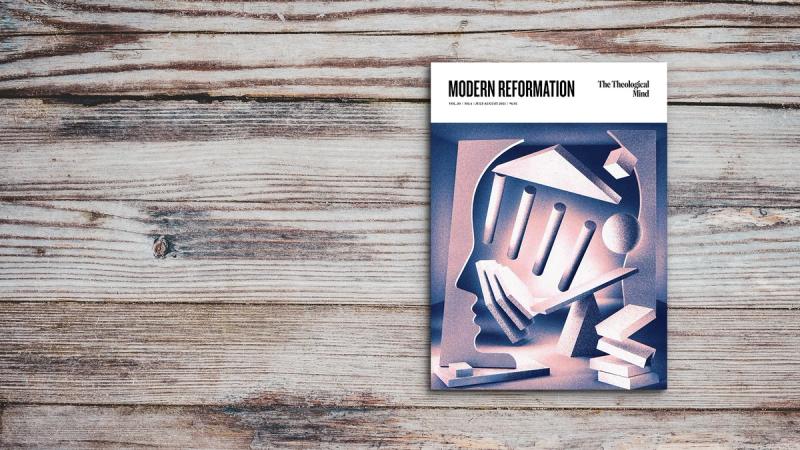In this issue of Modern Reformation, we think about the theological mind. That’s a funny thing to say but an important thing to do. For Christians over the centuries, questions concerning the renewal of the mind, the maturation of Christian discernment and wisdom, and the charge and state of theological education have proven to be significant considerations. In the late sixth century, for example, Gregory I observed in his Book of Pastoral Rule that there were many “who, on account of being ignorant of how properly to estimate themselves, desire to teach what they do not themselves know.” There is a great need, he instructed, that one learn before one aspires to teach. Yet, on the other hand, he noted, “There are those who investigate spiritual precepts with cunning care, but what they penetrate with their understanding they trample on in their lives.” There is also great need for obedience to the learned word, for spiritual formation. The theological mind aims at that balance of learning and living, truth and love.
In 1995 in The Scandal of the Evangelical Mind, Mark Noll asked a painfully insightful question: Why is it that American evangelicals (the largest single religious group in the United States at the time) had contributed so little to rigorous intellectual scholarship? For this issue, Dr. Noll reflects on the twenty-five years that have passed since the publication of his book. The vacuity of the term “evangelical” renders his main thesis still valid, Noll argues, but in terms of scholarship there may be reason for hope.
For decades now, Michael Horton has been a leading intellectual figure in Reformed evangelical and Protestant circles—and a heartening exception to the scandal poignantly demonstrated in Noll’s book. In our second feature, Dr. Horton looks back over the past half century or so, mapping one of those reasons for hope: what he sees as a genuinely encouraging renewal of theology.
Of course, renewal of theology is not simply to be equated with renewal of scholarship or academic institutions. It is also, even firstly, a renewal of the theologian. And a theologian is not simply to be equated with a professional academic. As Karl Barth once remarked, “In the Church of Jesus Christ there can and should be no non-theologians.” In our third feature, Michael Allen thinks through theological formation for the church.
Keeping to the themes of theological formation and education, we also include the first part of a beautifully instructive piece from Herman Witsius titled “The Modest Theologian,” and an interview with Dr. David Tarus about the state of theological education in Africa.
This issue of MR provides a rich array of resources for that important task of thinking about the theological mind. As you read and think, pray as well. Pray with us “that the God of our Lord Jesus Christ, the Father of glory, may give you the Spirit of wisdom and of revelation in the knowledge of him” (Eph. 1:17–18 ESV).
Joshua Schendel executive editor







